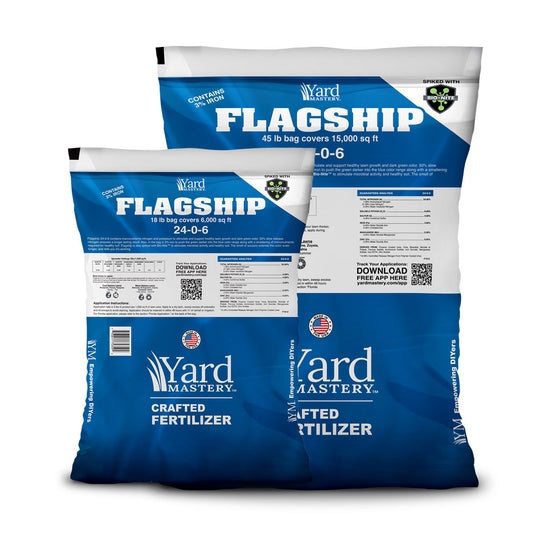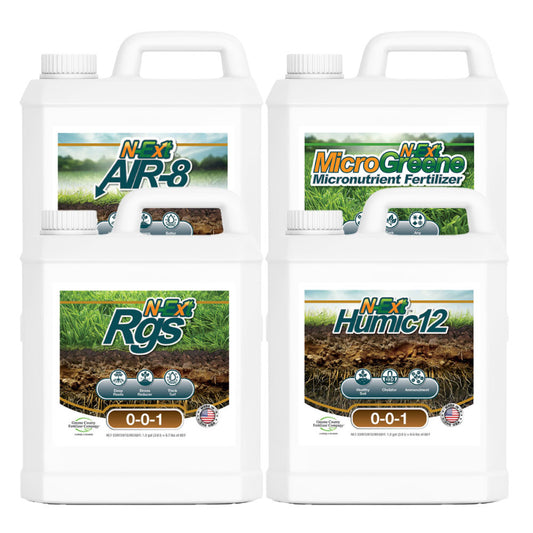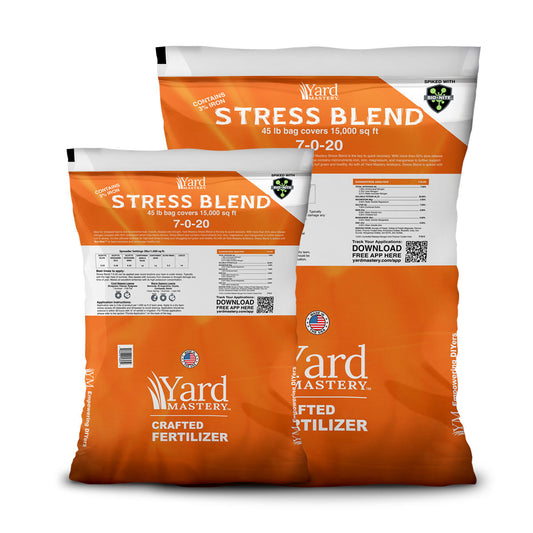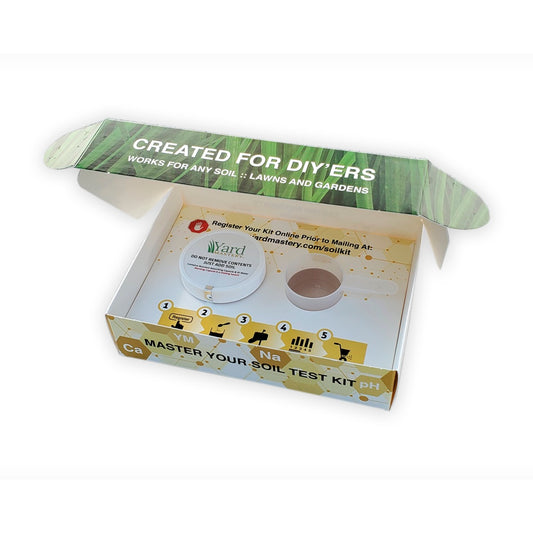It’s time to prepare for fall, y’all. Doesn’t matter where you live, it’s time to think about your strategy. Far north, far south or anywhere in between, there are some fall preparations we all need to consider.
Winter Annual Weeds
DEFINITION: Winter annual weeds and weedy grasses germinate and grow in fall and winter, survive dormant in the coldest parts of winter, and resume growth and flowering the following spring (this is when you see them usually). They spread out and drop seeds towards the end of spring and those seeds sit until the fall again, and the circle of life continues.
Just like in the spring when we hammer home the importance of preventing crabgrass (a spring/summer annual) I think it’s just as important to look at some prevention strategies for the fall and winter as well - especially those of you with lawns that you are not going to overseed this fall.
Cool Season Turf - Kentucky Bluegrass, Fescue and Ryegrass - if you are not seeding this fall, this is for you and in fact, if you have any of the problems I list below, you may want to reconsider seeding in the first place and go on defense.
Warm Season Turf - I don’t think many of you will be seeding anyway - that’s a springtime endeavor and not one I recommend anyway. And that is fine because you guys are the ones that suffer the most with winter annuals. Southern lawns don’t green up as fast as the winter weeds do and I get the panic emails starting every year in about February.
Pre-Emergent Strategies
We are going to talk a lot about soil temperatures again here. You’ll remember when we went over this in the spring time I’m sure, and not we are approaching the fall when it makes sense to start watching them again.
Leading from summer to fall is when we need to pay attention and the milestone soil temperature we are looking for is 70F. (get a soil thermometer here, or use the GreenCast tool or both)
70 F is the temperature at which the window is about to open for fall germination of annual weeds and weedy grasses. Your job if you want to play good defense, is to apply a pre-emergent herbicide BEFORE these guys germinate and as soil temps fall to 70 is the target. Right now here in August, the seeds are tucked away in the warm soil awaiting cooler temps and moisture to prevail.

This fall I’ve stocked up on Dithiopyr that you can use to execute your defensive, pre-emergent strategy. It’s a 50lb bag that will cover 12,500 sq ft at the rates I recommend.
I also had them juice it up with some added potash to help your lawn with summer stress recovery. The product contains 20% potassium which will also bring a nice color pop. So you get pre-emergence control of the weeds listed below, as well as stress recovery nutrients all in one application.
Rates are:
4lbs/1,000 when soil temps fall to 70F. This will give you roughly 4 months control and is just fine for anyone in the Midwest and up into the north east.
If you live further south in the transition zone or south, you will want another application of 4lbs/1,000 as soil temps fall to 55F and in many cases, that is where your soil temps hover all season. The second application just gives you the needed push into the next spring when the germination window closes.
2 applications this fall and into winter - that’s all you need. I’ll be shooting a video this week showing you exactly how to apply it using a Scotts EdgeGuard Deluxe spreader.
Get dithiopyr here.
Q/A - yes, this will store over winter - keep it dry and use any extra you have next spring for crabgrass.
Q/A - yes, you can use prodiamine in place of dithiopyr or vice versa. They will work the same - but prodiamine has strict yearly max application amounts that many of you have exceeded so switching to dithiopyr is a good idea, especially to get the added potash.
Q/A - Florida blackout - you can apply this in Florida where there are blackouts because potash is allowed so you can get pre-emergence control and a color pop during the blackout.
Weeds we are Targeting with this Strategy
Annual Bluegrass (poa annua)
Annual Bluegrass infects lawns in every single state in the US and well into Canada. It’s the one that I get the most emails about each year in early spring and unfortunately, at that time, there isn’t much we can do. Good thing you got this email because right now is the time to stop it so you don’t end up with this in January for February of next year:

Cool season turf, you are not spared the pain of poa annua - yours just shows up later down the line in late spring when it can’t hold the color as well as your good Kentucky Bluegrass or Fescue and it shows up as lime green spots and then suddenly dies in summer leaving bare spots.
Chickweed
You will see common chickweed and mouse ear chickweed. Both produce prolific white flowers in mid to late spring and spread very quickly. Chickweed, also known as starwort and winterweed, infests lawns in every state in the US also.

Henbit
Henbit and Purple Deadnettle are both in the same family, Lamiaceae or the Mint Family. This is another one that is found throughout all of the US and up into Canada. It’s often confused with creeping charlie and violets and I find it growing alongside them often. Difference here is creeping charlie and violet are perennial and Henbit is annual. It shows up in fall time with those scalloped leaf margins and pushes lots of lavender/purple flowers in spring. It grows very quickly and takes out sections of your lawn into the spring before dropping seeds and dying. It’s easily prevented using Dithiopyr as soil temps approach 70F.

Hairy Bittercress
Sounds like the name of a guy who picked on me in high school and now he is invading my lawn too! I have problems with this one all the way down here in Florida, but it’s most prevalent through the transition zone. Very heavy in the Carolinas and Georgia and into Alabama too. It’s not a threat west of middle Texas for some reason so it’s mainly eastern from Maine down to Florida. It’s ugly.

Conclusion
I highly recommend any of you with warm season turf get ready for this pre-emergent strategy coming into the fall time. Seeding is not an obstacle for you in most cases so you can focus on defense when it comes to this winter annuals. You have a few more weeks to prepare as your soil temps will remain higher for a bit. Here is a snapshot look at Athens, GA and it looks like the window opens in early October so getting your application down 10-14 days prior to that day is a good idea.
In this area, you will want a second application of dithiopyr about 30 days later as a backup.

If you have cool season turf and don’t plan to aerate or overseed (mechanical aeration will break the barrier) then I also recommend you consider some pre-emergent defensive strategy against your main invaders as well. If you live near Allentown, PA for example, then early September is your target start day and you are almost there! (you do still have time to get dithiopyr from out shop)

If you are wanting a full on lawn plan, and you have cool season turf, consider my updated lawn plan and guide. Get the guide here and the full, 45 page fall supplement is included, free. It goes into much greater depth on this strategy and shows you the fertilizer to apply right along with this pre-emergent to get your lawn super thick in fall time without aeration of overseeding.
Get the cool season guide here.
If you have warm season turf, I will have a fresh update coming to your guide sometime in early September as well.
I’ll see you in the lawn!
AL







